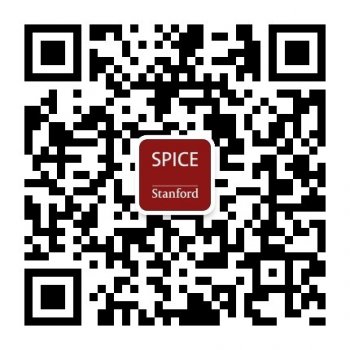Stanford e-China: Climate Tech Innovation and U.S.–China Collaboration

Accepting Applications
April 26, 2025 - September 10, 2025
The application for the fall 2025 course is at .
Fall 2025 course dates: September 26 to December 5, 2025 (China Time)
Final deadline to apply: September 10, 2025. (Early-bird deadline: July 1, 2025.) Applications are considered on a rolling basis.
Tuition: $4000 USD (Early-bird: $3500 USD)
Follow 91łÔąĎ on WeChat (QR code below), , , or and to receive announcements for the next application period.
Climate Tech Innovation and U.S.–China Collaboration
Offered every fall, 91łÔąĎ is offering a distance-learning opportunity to exceptional high school students and year 1–2 university students from China. Born out of Stanford e-China’s original program, Technologies Changing the World, this interactive, virtual course will focus more specifically on climate tech innovation, as well as collaborative strategies at the global, bilateral, and community levels in pursuit of climate solutions. Students will also be introduced to design thinking and apply the human-centered framework to a climate-related challenge for their final project. In real-time seminars with leading 91łÔąĎ scholars and Silicon Valley entrepreneurs, students will participate in a rigorous learning experience as they explore exciting areas for academic study and future professional opportunities. In this English-language course, students will engage in live and online discussions.
Students who successfully complete the course will receive a Certificate of Completion from 91łÔąĎ, 91łÔąĎ.
Students will also gain practical, academic skills:
- Pre-recorded, university-level lectures by leading scholars from 91łÔąĎ offer practice listening to a variety of lecturing styles
- Real-time discussions led by guest lecturers familiarize students with the dynamics of classroom participation in schools such as 91łÔąĎ
- Short writing assignments improve critical thinking skills
- The final project requires students to investigate a challenge related to course themes, develop a compelling presentation, and practice oral English skills
Course components emphasize active participation and development of student interests:
- 10 “virtual classes” online in real time on Saturday mornings Beijing time
- Weekly reading assignments of varying length and difficulty
- Required participation in virtual discussion boards with classmates
- Short writing assignments reflecting on readings and lectures
- Research in an area of interest related to course themes (with instructor guidance)
- Direction, facilitation, and support from the instructor throughout the course
Admission to this program is competitive; up to 30 exceptional students will be accepted. Requirements include:
- Enrollment in grades 10, 11, or 12 in a high school in China with exceptional academic experience, or in year 1 or 2 in a university in China
- Ability to read, write, and discuss complex ideas in English
- A complete application including a written personal statement, transcript, and availability for a virtual interview
- Availability for all or most of the virtual classes on Saturday mornings
- Ability to allot 3–4 hours per week for class preparation and assignments, on student’s own schedule
- Use of a personal computer, camera, microphone, and reliable access to a broadband Internet connection

For more information, please see the Frequently Asked Questions, contact Carey Moncaster (Stanford e-China Instructor) via email at cmoncaster@stanford.edu, or contact Liyi Ye (Stanford e-China Advisor in China) via WeChat at hiStanford.
